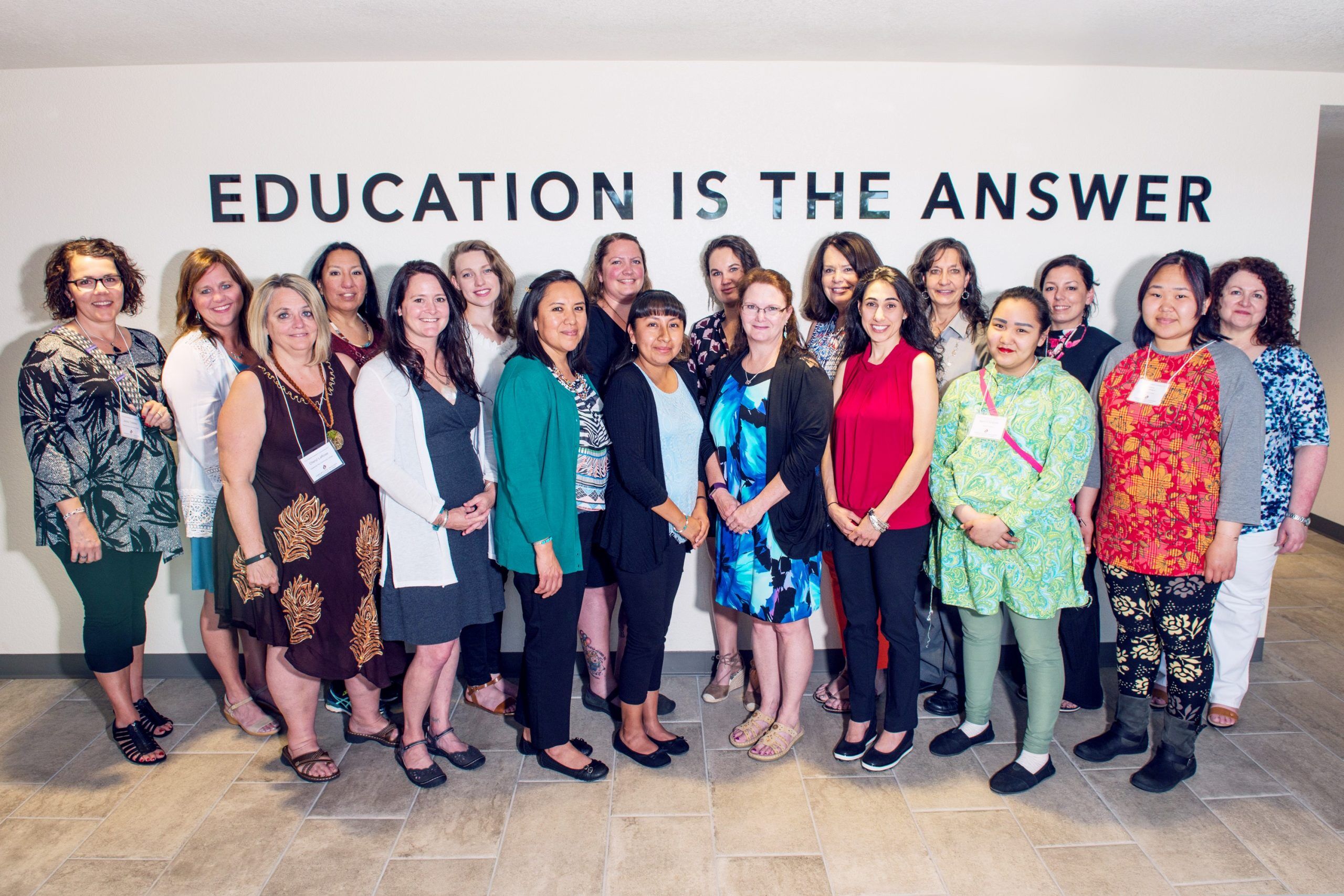A Reflection on the 2017 Convening of the Restorative Teachings ECE Initiative Grantees
As we do more, we have to train others to take on more. These were the opening words of Tarajean Yazzie-Mintz, Vice President of Program Initiatives and Director of Early Childhood Education Initiatives at the American Indian College Fund’s 2017 Restorative Teachings Early Childhood Education convene in Denver, Colorado. Yazzie-Mintz built on the words of the great Navajo leader, Annie Dodge Wauneka, who directed herself and others to “Go and do more.”
As attendees from seven participating tribal colleges and universities –College of Menominee Nation (CMN), Southwestern Indian Polytechnic Institute (SIPI), Northwest Indian College (NWIC), Iḷisaġvik College, Keweenaw Bay Ojibwa Community College (KBOCC), Sitting Bull College (SBC), and Salish Kootenai College (SKC) worked throughout the day to design and articulate their theories of change, reflect on their work, and plan for the future, all of the TCU grantee teams were also focused on sustainability of the work.
Restorative Teachings Initiative seven grantee teams from Wisconsin (CMN), New Mexico (SIPI), Washington (NWIC), Alaska (Iḷisaġvik), Michigan (KBOCC), North Dakota (SBC) and Montana (SKC).
One ingredient of sustainability is visibility. Opening the day with words of wisdom for her colleagues, Dr. Danielle Lansing, Project Director of SIPI’s Restorative Teachings initiative, declared that, “We need to be brave….We are ready to lead.”
Expanding on this important idea, Lansing talked about the need to do more than “accept the bare minimum” from potential project partners, but rather to “establish ourselves…through storytelling. This is a new era for us. We are going to stand and tell the story.”
Cheryl LaRose, Project Director of KBOCC’s Restorative Teachings Initiative, talked about how, after working in another agency for nearly a quarter of a century where she thought that the minimal engagement they were getting from parents was the best they could do, this initiative has made her think much more deeply about authentic parent engagement. Focusing on visibility as a way of engaging the community and sustainability as a way of planting long-term roots for this work, LaRose shared what her team is doing that is different from their past work: “We went to a meeting and we told our story of parent engagement….Now we are getting it.” Their expectation was that they would only get a few families to participate in events as their past experiences indicated; now, the KBOCC Little Eagles program regularly gets more than 50 families to come to Family Fun Nights and other Restorative Teachings events. At the convening, the teams got to screen the short film that documents their work over the last year, which will be released later this year.
SIPI Restorative Teachings team collaborates with Matthew Echohawk-Hayashi of Headwater People to focus on the sustainability of their Native early childhood work.
With the help of facilitator Matthew Echohawk-Hayashi of Headwater People, the teams spent the day engaging in a process of designing their theories of change, a framework for identifying and articulating the goals of their work, the process by which they will achieve their goals, the resources needed and obstacles anticipated, and the indicators of success.
Each of the seven teams dug into specific questions—What will make your program successful? What are the indicators that your program is successful? What resources do you need to make your program successful? What is the added value of your program to your students, their families, and the community you serve? What activities will you implement to create success?— as well as broader, sometimes metaphorical questions: What are the plants you are feeding in your program? What are you growing? How are you nourishing your plants? In what ground are you putting your stake? What do we need to harvest to live through the winter (i.e., the challenging times)? What will success look like at different stages along the way, in three years, in five years, in 10 years, in 25 years?
KBOCC Restorative Teachings team engages with each other to form their framework for their theories of change.
Out of this process emerged important themes, words, phrases, and areas of focus for each of the teams: Passion. Inspiration. Visibility. Engagement. Growth. Relationships. Reciprocity. Strong, healthy systems. Regeneration and reclamation of traditional values, language, and culture.
NWIC Restorative Teachings Project Director shares about their project goals and visions of their Native early childhood work.
The convening served to connect teams with each other and allow them to share work, design theories of change to drive the Native early childhood projects at each site, develop skills and knowledge to improve programs, and energize teams and team members to “go and do more.”
Yazzie-Mintz gave the teams important concepts to think about when they returned home to their work, their programs, and their communities:
Focus on your purpose. Embrace your framework. Embrace your timeline. Embrace your 25-year vision. Be adaptive and responsive and persistent…Children will see their history and will use that knowledge to change themselves and change their world.

